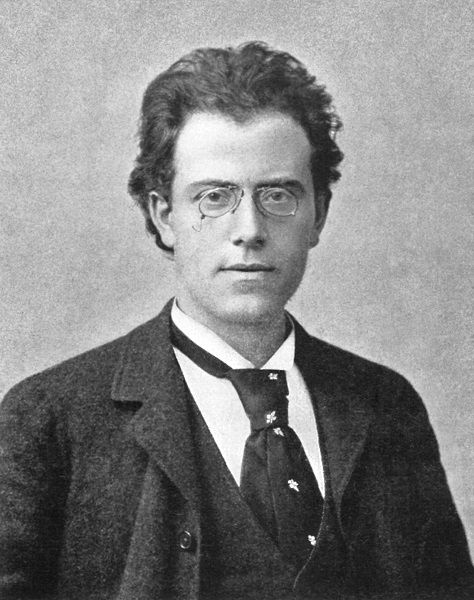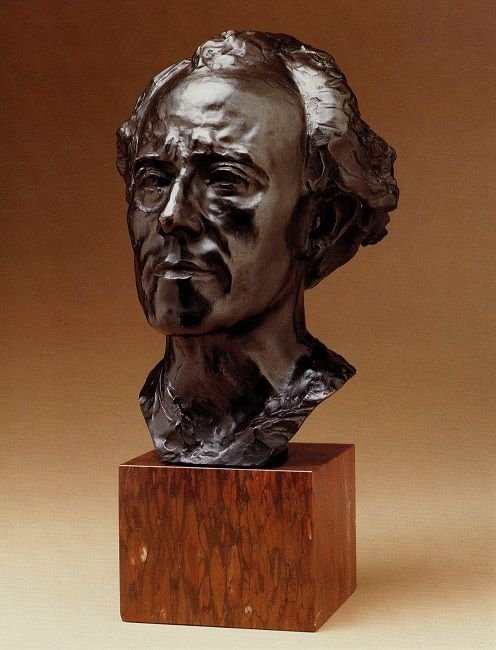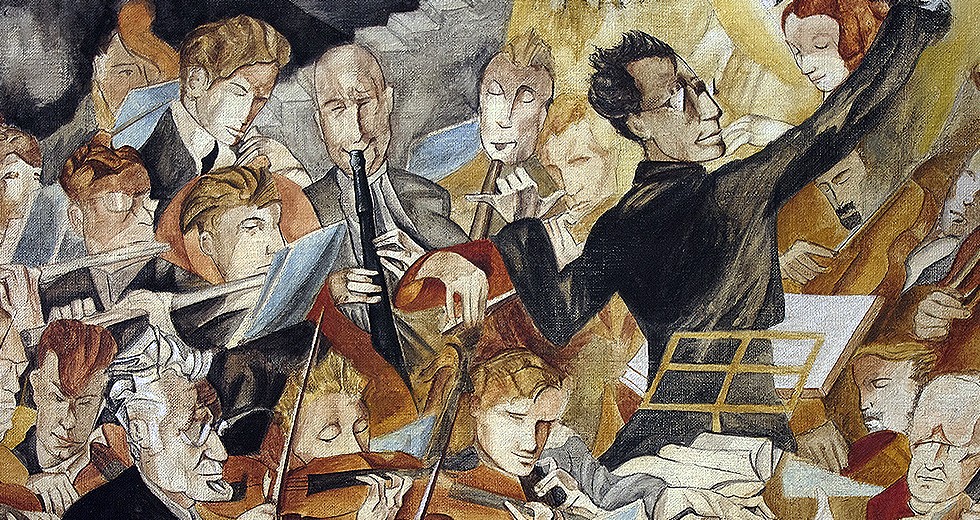The Genius, The Depression, and The Divine Music - Gustav Mahler
Throughout his life, Mahler suffers from compulsive thoughts. And finally his intuition comes true. Despite this ugly irony of fate, despite all the miseries and misfortunes he does not stop for a moment to create. Till his last breath. Gustav Mahler is the composer who casts a bridge between the nineteenth-century melanchial romanticism and the atonal modernism of the early twentieth century. His work is not big in volume. He left ten symphonies, one of them unfinished, and a few song cycles. In Life he is far more known as a conductor than as a composer and greatest symphonist of his time, as he is now determined. But for over a hundred and four years, his music can be heard more and more often in the world's biggest concert halls. It's hard to perform, but great for listening. Gustav Mahler was born in 1860 in a Jewish family from East Bohemia, then the province of Austro-Hungary. The composer's father is a poor man who, with his own efforts, rises to the middle class. First, he becomes a coach, then starts trading in alcohol, sugar and home-made products. Already a 30-year-old woman is a much younger woman, the daughter of a soap maker. She does not love him all his life, but he gives birth to 14 children.

Gustav is small when the family moved to Jihlava. There the father bought a tavern and the boy grew up with the variety of music that played in it. His father himself is a musician and encourages the interest of his son. At 6, the kid learns to play the piano and at 10 he gives his first concert. In 1875, at the age of 15, he enters the Vienna Conservatory, which ends three years later, but without the expected silver medal, which guarantees serious commitments right away. Then he enrolled at the University of Vienna where he listened to lectures on literature and philosophy for one year, and he delved into the texts of Schopenhauer and Nietzsche. His biographer Jonathan Carr writes about that period - "his head is full not only with the sound of Czech groups, trumpet calls, marches, Bruunner's or Schubert sonatas. It pulsates with problems of philosophy and metaphysics. " As a result comes his first major musical work - a dramatic cantata with the wonderful title "The Song of Cry". As critics say, there are still some remnants of Wagner and Bruckner's influence here, but for the most part the cantata is "pure mahler." As a conductor, Gustav Mahler began his career in 1880, when he was 20, in a small operetta theater of a resort town near Linz. His first professional engagement is next year in Leibach, today's Slovenian capital, Ljubljana. He then sings a little in Vienna and gets a "music and choral director" contract in Kassel, Germany. In spite of the loud title, he is subordinate to the theater captain, who does not like it and makes his life worse. Still here, Mahler is already demonstrating his abilities by conducting whole operas and other great works.
Luckily, Kassel is the famous conductor Hans von Bülow, he likes it, and Mahler becomes his assistant, who gets a six-year contract for the prestigious Leipzig opera. But the contract began in 1886, and until then he went to the New German Theater in Prague. This is a bit of a bad time and place. A wave of revival of the Czech self-consciousness of Prague bay and the eyes are in the New Czech Theater, while the New German falls. Mahler does what he can to raise his authority and conducts leading German composers like Mozart and Wagner, but he is also experiencing conflicts with the orchestra and his colleagues because of their highly authoritarian style. In Leipzig, Mahler seems to develop his skills to get into trouble. The orchestra's musicians call him a dictator and oppose the heavy rehearsal schedule he imposes on the argument that there is no need to rehearse things they already know nicely. Meanwhile, however, Mahler gains true glory by presenting the entire Wagner cycle "The Nibelung Ring". The conflicts are still getting worse and, looking for a new job, he learns that the Royal Opera in the Hungarian capital of Budapest is conducting a conductor competition. He appears and wins, which seems to end the first part of his majestic conducting march across Europe. This is part of the cycle "Songs of the Wandering Calf", which Mahler composes in Kassel, while making love to soprano Johanna Richter. A little later ringtones are woven into his First Symphony. It was completed in 1888, a year that is led to the beginning of the first strong creative stage of Mahler - the composer. This stage is the longest, ending in 1901, the next six years is the most intense middle period, and finally the most elusive - from 1907 to his death in 1911.

Gustav Mahler by Auguste Rodin
However, all this development starts in Budapest, where, among other things, Mahler presents his First Symphony. The cause is a failure. As one critic wrote, "the enthusiasm of the audience after the first part quickly became a sound opposition after the final." Not only this, however, is the reason why Mahler is to leave Budapest. There he comes mostly with a German repertoire, but he faces resistance among the local audience, who wants to listen mostly to Hungarian music. It is saved by a new contract with the Hamburg City Theater. There, Mahler puts Wagner, including Tristan and Isolda and Tanghoyser. He has achieved tremendous success with the premiere of "Eugene Onegin". Tchaikovsky, who attended the event, sets Gustav Mahler's conducting style as "overwhelming." This style, however, does not save him from the failure of the First Symphony and in Hamburg. Glory of composer Mahler began to acquire two years later when he presented in Berlin Symphony No. 2. Mahler spent several years in Hamburg, but also close to him, looking at the Vienna Imperial Opera House. For this purpose he used influential friends and finally succeeded in 1897. The next 10 years are a time of complete creative happiness for him, he unfolds both as a conductor and as a composer. Little detail - While still preparing for the Vienna Opera, the Jew Mahler accepted Catholicism.
Today, perhaps, we would not approve of this opportunism, but it should be taken into account in what time and society he lives. Since his birth, Mahler has been double-discriminated - first because he is a Jew and secondly because he is a German-speaking Jew in the Czech environment. The Jewish background, fragile health, the already mentioned authoritarianism of the orchestra, and his energetic style of conducting, which is widely perceived as a pose, bring him lifelike mockings in the salons, cartoons in the press and more serious troubles. Mahler, for example, is a man of long depression, of which he never finds peace despite the sessions of Sigmund Freud himself. That is why endless problems in love also help. During the first 40 years of his life, the composer is known for a series of scandalous links, mostly with young opera singers he works with. In 1901, when he was at the top of his glory as the conductor of the Vienna Opera, he met the beauty of Alma Schindler. In fact, their dating is difficult - at first she does not want to meet him because of his scandalous glory. Pure coquetry, by the way, because Alma herself is not a shy girl at all. At only 22, she has already tasted the sweetness of love with some of the most famous artists in Vienna - artist Gustav Klimt, theater director Max Burghart, composer Zemlinsky. But very quickly Maler conquers Alma, they both marry, have two children, but their joint life is full of passions and contradictions. He forbids Alma to compose on the motif that a composer in the family is enough. She, on the other hand, finds her lover - the famous architect Walter Gropius.

The work is revealed and Mahler is extremely unhappy. Water in the depression mill pours the death of one of his daughters. At that time, besides family problems, the tension in the Vienna Opera was already too strong, and so the composer embarked on his last conducting adventure - in 1908 he moved to New York, first to the Metropolitan and then to the New York Symphony Orchestra. Before going to the United States, he reconciled with his wife and she came with him, but the relationship with Gropius continued secretly. This secret Mahler seems to never learn. However, his life is obscured by the chronic heart disease he suffers from and which ultimately kills him. His most famous work is Symphony No. 8, whose premier Mahler ruled in Munich just a few months before his death and finally attained the long-awaited composer's triumph greater than his triumph of conductor. "He is the man who embodies the most serious and pure artistic will of our time," Thomas Mann wrote in the early 20th century. For Gustav Mahler himself: "to write a symphony means by all means to build a new world." With such aesthetic maximism, building a new world through music, achieving total harmony becomes an extremely complex, impossible task. And the life of the Viennese composer turns into an eternal struggle with the impossible.
Mahler completes the tradition of the philosophical classical-romantic symphonism of Beethoven, Schubert, Brahms, Tchaikovsky, Brookner, symphonism that seeks to answer the ultimate questions of being, to determine the place of man in it. Mahler graduated from Musical Romanticism, but he has already felt new strokes, dominated by huge human tragedies. The esotericity of the masculine emotions will be borne by the Expressionists Schoenberg and Berg, and the inability to accept and explain the world in its brutality will be further developed by Britton and Shostakovich. Deep compassion for every creature, marginal sincerity, and childish surrender to cruel reality are what brings man to our time closer to the senses and music of Mahler. "Every creature, even if it is a stone, is considered the center of the universe, and that with mystical power engages all to each other. Perhaps it is for good, "concluded the composer in his recent years. And, maybe he is right, we just have to remove the alienation layers to feel the cosmic attraction, according to Mahler.
Image source: 1, 2, 3